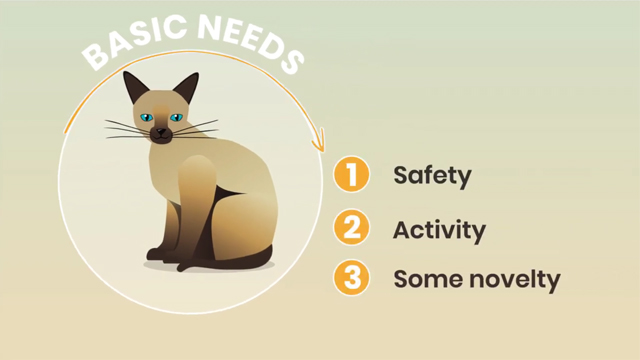back to top of page
How To Set Your Kitten Up For Success
Spring is the time for new beginnings, flowers, sunshine, and kittens.
Yes, kittens. Spring and summer are known as kitten season, for good reason. It’s the time of year that the tiny cats-to-be are born and, at the appropriate age, go to their new homes. Before you bring one of these cute kittens home, learn how to help ensure a happy transition to a new life for both of you.
Kittens 101
The way a kitten is raised and how you care for her can affect her entire life. Like puppies, kittens need socialization, the process of becoming accustomed to handling by humans as well as to common sights and sounds in homes.
Kittens require socialization very early in life, between the ages of 2 and 7 weeks, well before they go to their new homes. They can continue learning afterward, of course, but those youthful experiences have a profound effect on how well they adapt to new homes.
Kittens who are well socialized through 14 weeks of age are more likely to be calm and adaptable to life with people. And cats whose innate emotional needs are met have decreased life stress and live happier, healthier lives. We humans bond with these cats more easily and they make better companions.
For these reasons, kittens who come from shelters with foster home programs or from knowledgeable breeders who understand their developmental needs have a head start in life. The good news is that kittens who don’t have those benefits can also make good pets, especially if their father is friendly. Interestingly, a study found that a kitten’s friendliness is influenced by the friendliness of her father, even if the two never interact.
Kitten Care Planning
To prepare your kitten for a long and healthy life, take these three critical steps.
- Continue your kitten’s socialization with positive exposure to handling, grooming, traveling, and other cats and dogs, not only through the end of the socialization period at 7 weeks but throughout life. Your veterinarian may hold, or know of, kitten socialization classes that can help your kitten develop positive reactions to new experiences.
- Set up your living space to meet your cat’s innate need to climb, hide, scratch, and hunt. Here are some easy ways to do that:
- Provide boxes and other areas where your cat can hide (line boxes with a towel to increase their attraction to your cat)
- Leave your cat’s carrier out and open, making it an enticing space with cozy bedding and surprise treats on a random basis
- Set up a cat tree or perch in an area where your cat has a good view of everything going on around her
- Provide a sturdy vertical or horizontal (or one of each!) scratching post in a highly visible area so your cat will feel that her scratch messages are seen and appreciated.
- Get your kitten vaccinated, dewormed, and spayed or neutered before she’s 6 months old.
This article was reviewed/edited by board-certified veterinary behaviorist Dr. Kenneth Martin and/or veterinary technician specialist in behavior Debbie Martin, LVT.



